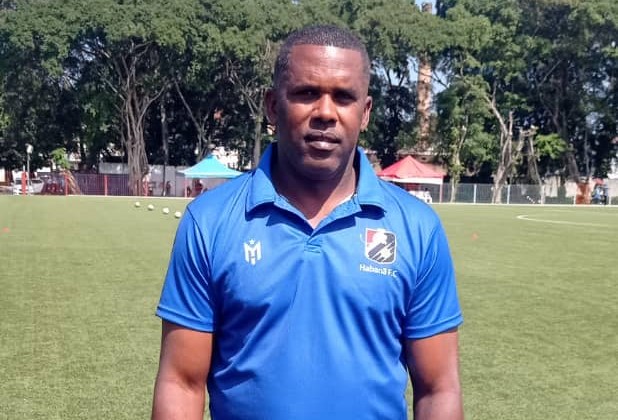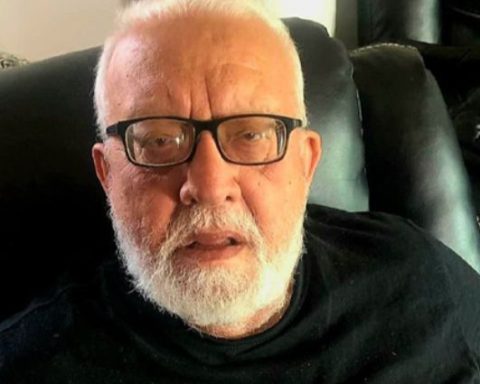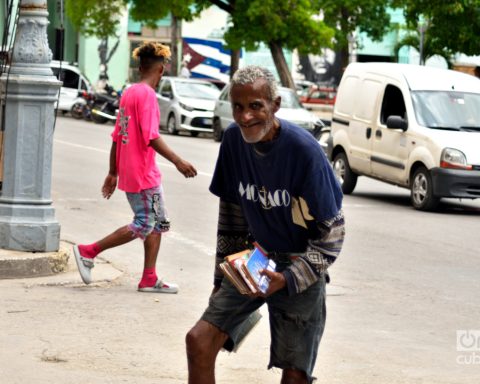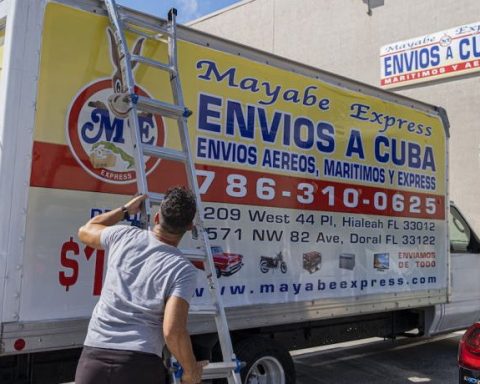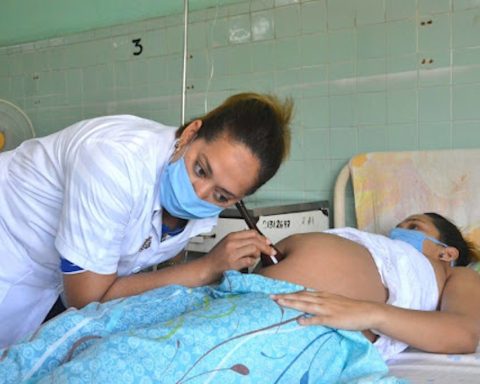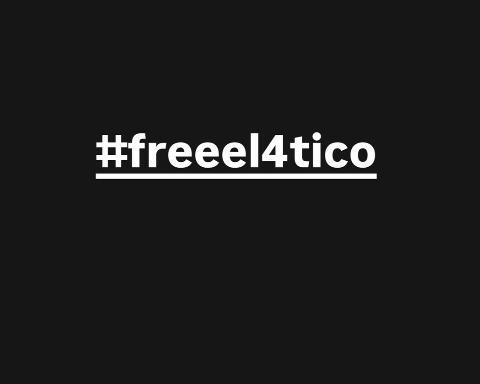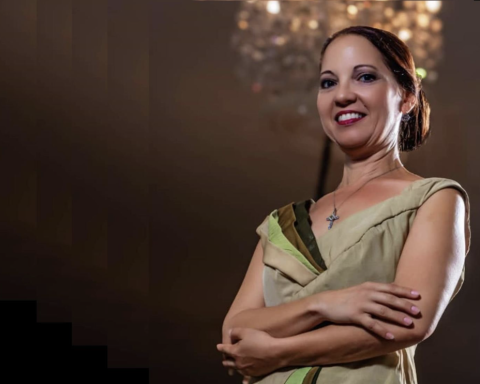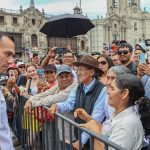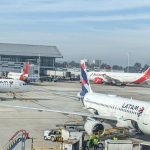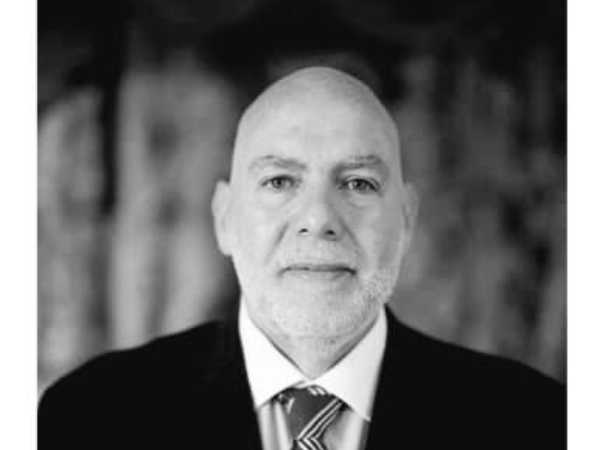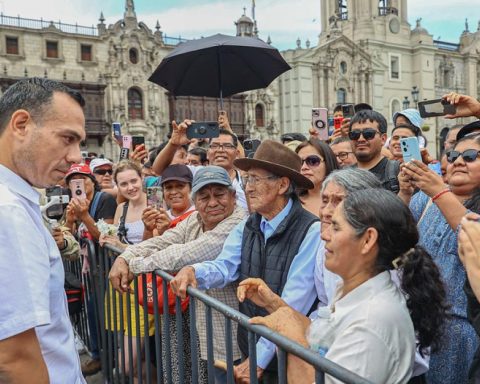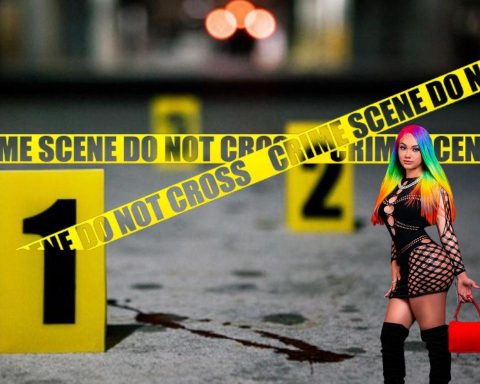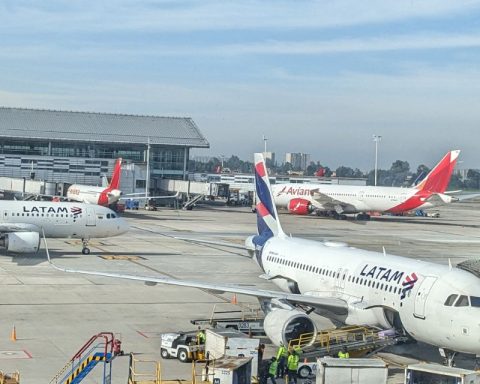HAVANA, Cuba.- Getting an interview with Alexander Cruzata (Holguín, 1974) was as easy as writing to Messenger to ask him “hey champ, can I send you a questionnaire?” His immediate response was limited to “ok bro, we’ll coordinate it,” accompanied by a thumbs up from the likes.
I remembered him as a gentleman on the field, and that is precisely what I found when I spoke to him. No expletives, harsh words or slander. The native of Cueto was one of the top defenders when I graduated in journalism, and still – if I try hard – I can see him starting in the teams where he played, sometimes in his native province, sometimes in the national team.
Because when I started in the national press, I had to cover the domestic championships soccerThe level was not high (it is still far from being so) but there were a few players who stood out. Pinar had its own, Havana too, and Ciego, Villa Clara, Camagüey…
He was in Holguín, with the everlasting ‘5’ on his back. Representing that team he experienced the unspeakable glory of the trophy, and for 16 years he also wore the jersey of the different national squads. Four Caribbean Cups saw him roam around its territory, and in one of them he achieved the reward of being runner-up. In addition, he crowned his record with a bronze in the Central American and Caribbean Games in Ponce 1993.
After a bunch of national tournaments and 87 appearances with the senior team —fourth in Cuba in that category—, one day he had to imitate the others and opt for retirement. Injuries were no longer giving him life and he understood that it was time to hang up his boots, perhaps hoping that he would be well looked after by a sporting movement to which he had given himself body and soul. A mistake.
“I have always lived for football and not from it,” he says. “It has been in my blood since I was ten years old and I still love it even though it has only given me disappointment. Honestly, I have felt used. I have had serious health problems and I have continued working, giving everything to football and supporting it as much as I can.”
—What are you currently doing?
—I work at the grassroots level. I have been in the Boyeros municipality for eight years with different school categories and good sporting results. I am already 50 years old, and I would like to one day work in a national team to pass on my experiences as a player.
—Most kids who come to football want to be forwards. What attracted you to being a defender?
—It is true that the vast majority of children are attracted to being forwards, but that was not the case for me. Whenever we played fencing, I always liked to be at the back, defending, and I never leaned towards becoming an attacker. Defending always attracted me and I ended up playing in all the positions in the back line.
—What are the essential characteristics of a central defender?
—A central defender must be a leader. Just like goalkeepers, central defenders must show their leadership in matches. For this position, you need character, good physical condition, ability to play in the air and mark, the ability to read the game and know how to anticipate in order to stop attacks.
—Are the conditions in which football is played in Cuba today better than when you were active?
—In the nineties it was a little more difficult, because nowadays there is more motivation given that players can go to professional leagues, in addition to the Gol project with which the FIFA He is very supportive. But in general we are still the same on many things.
—Which forwards were the most difficult for you to mark?
—Without sounding like I’d say none, because I studied them a lot. For example, if they were strong like Luis Martén, I would mentally prepare myself so as not to have much contact with them and just try to touch the ball. Although, well, I could tell you that for reasons of height difference, I found shorter attackers like Andrés Roldán or “El Jimagua” Betancourt more complicated.
—Who do you include in the Top 5 Cuban defenders?
—I couldn’t tell you, I played with very good defenders and it’s difficult for me to make that list. But I can mention some like Yenier Márquez, Osmín Hernández, Armelio Luis, Rolando Rodríguez… I’m leaving out many names; I’ll mention those above.
—Where do you think the biggest problem lies in national football?
—I think one of the biggest problems is defensive, because we don’t know how to hold on to the result and we have to work hard on that. We also have to improve our motivation, because we are relying on the players who are playing for foreign clubs and we don’t pay attention to the reserves. We have to give the youngsters challenges. Recently, the futsal team spent two weeks in Venezuela and qualified for the World Cup, and the same thing happened with the U-20 team. We have to keep an eye on that team and prevent it from disintegrating. And another very important thing: work more on the base.
—Let’s look at a hypothetical case: if you were the national commissioner tomorrow, what measure would you take to start with?
—I would change the strategy of the national championships, which are too poor in all categories. Coincidentally, a youth championship was held now, which had only three or four matches due to fuel restrictions. It is not possible to discover talents in this way, and then there is disappointment for coaches who spend six or seven months preparing their pupils for just a few matches. That needs to be changed.
—How far would you have liked to play in one of the European championships?
—Imagine, every footballer dreams of playing in professional leagues, but that wasn’t accepted in my time. We did a lot of preparation in Europe: we played in Italy, Spain, Germany, Holland, France, Norway, Denmark… We visited a few countries and played against teams from the Second and Third Divisions, and we had the feeling that we could do well there. Here we had a Peruvian coach, Miguel Company, who always told us to observe the professionals and look in their mirror. “There are players there that you can replace,” he insisted.
—Tell me about your experiences facing Romario and Batistuta.
—They were two great experiences. We were in Italy when Batistuta was at Fiorentina and we played against them. Imagine, we had players next to us that we saw on television and they were stars, and when I stood next to Batistuta it seemed incredible to me. And something similar happened with Romario. We went to Brazil for a month and there we played against teams like Botafogo and Fluminense, and that ended up giving me the opportunity to mark Romario.
—Why did you once say that “Cuban players today only think about having something material without really sweating the jersey”?
—I have seen games of the national team And from my point of view there are some athletes who do not give their all. They are thinking more about material things and about protecting themselves from injuries that could harm them in their clubs, and I think they should sacrifice a little more, like others who give 100% do.
—Which uniform did you feel more comfortable with, the one from Holguín or the one from Cuba?
—I gave my all to both of them, even when suffering from injuries. When we were champions with Holguín, I put my heart and soul into every game, and every time I put on the national team jersey I did the same.
